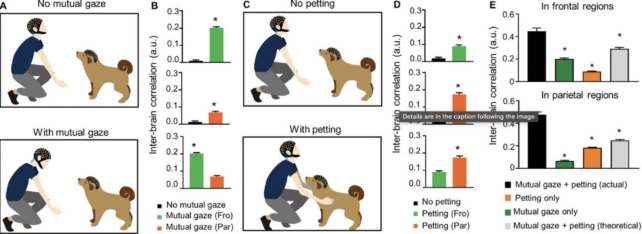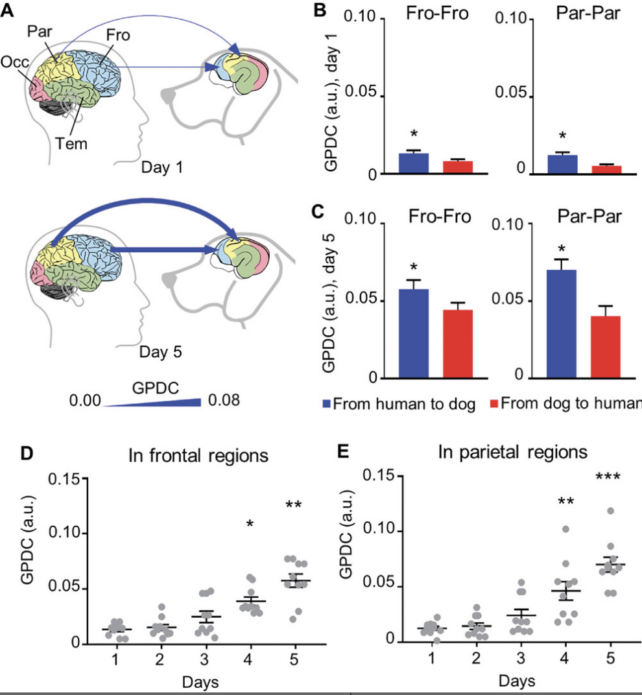If you’ve ever gazed into the big, watery eyes of a dog and suddenly felt connected, you might have been experiencing a moment of brain synchronization.
For the first time, researchers in China have found neural activity syncing up between two different species: humans and dogs. The findings suggest we really do bond with our pets on a deeper neurological level.
Previously, studies have shown that when humans are talking or working with one another, our brain activity in key regions can sync up. But this is the first series of experiments to report a similar phenomenon between humans and another species.
The researchers measured brain activity in humans and dogs by placing electrodes on the skull. For the trial, 10 young beagles were matched with unknown humans, and the pairs got to know each other over the course of five days.
In the experiments, the human-dog pairs engaged in nonverbal communication, such as mutual gazing or a good old pat. As a control, the human and dog also stayed in the same room and did not interact.
“We observed that inter-brain correlations in frontal and parietal regions dramatically increased… during mutual gaze,” the authors of the study write, led by biologist Wei Ren from the Chinese Academy of Sciences.
When the human participants were just petting the dogs, the team observed similar patterns of synchronization, but in this case the synchrony was stronger in the parietal brain region.
In humans, activity in both the frontal and parietal brain regions is associated with joint attention. Previous studies have found that when humans pet their dogs, their frontal lobe activity spikes, which suggests they are paying close attention to their pet and are emotionally engaged. But it’s not been clear until now whether this activity was mirrored in the dog’s brain.
In the current study, when humans were asked to pet the dogs and gaze into their eyes, the inter-brain activity between the two was even more connected than when they were merely patting or merely gazing at the dogs.

To figure out which brain was leading this rhythmic neural dance, the human’s or the dog’s, researchers employed a special mathematical algorithm.
Plugging in the data from each human-dog interaction, the team found it was the human brains that were initiating the coupled neural activity. Over the course of the study, inter-brain synchronization between the human-dog pairs grew, which suggests the two were bonding.


Some scientists hypothesize that deficits in social cognition, seen in autism spectrum disorder ( ASD), result from reduced brain synchronization with others.
To investigate this hypothesis further, researchers conducted the same experiments over again, but this time with nine dogs who showed similar characteristics to human ASD. In this case, the human-dog pairs showed less inter-brain synchronization, indicating reduced joint attention.
LSD has been shown to enhance the social behavior of mice in previous studies, so researchers tried giving the dogs with characteristics of ASD a single dose of this psychedelic. The drug ultimately improved the dog’s synchronization with their paired humans.
While the study is only small and further research is needed, these dogs could be a useful model for studying the neural mechanisms underlying the social deficits associated with ASD, the researchers say.
“Our findings suggest potential inter-brain activity biomarkers for ASD diagnosis and development of engineered non-hallucinogenic analogs of LSD to correct social deficits,” the authors conclude.
The study was published in Advanced Science.
